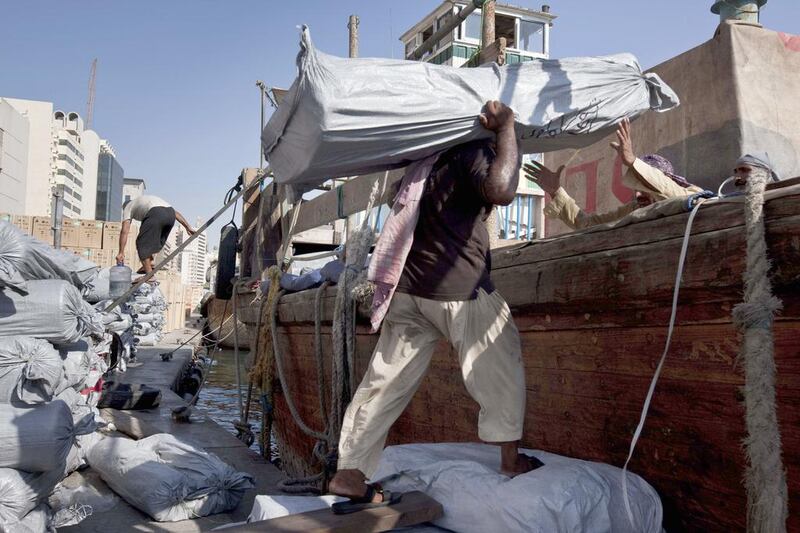Trade in foodstuffs between Dubai and Iran is picking up, spurred by a more stable exchange rate and hopes for an Iranian re-engagement in the global economy.
The gradual recovery in the flow of some goods across the Strait of Hormuz reflects a more buoyant Iranian economy, led by a stronger currency and gains in the stock market, which has surged nearly 90 per cent since June.
There had been a 30 per cent jump in foodstuffs trade between Dubai and Iran since Hassan Rouhani’s victory in the presidential election in June, said Ali Sowdagar, the marketing representative at Iran Insurance, a Dubai-based insurer of export credit with Iran.
Fruit, vegetables and nuts were among the goods re-exported through Dubai from countries including Egypt and Pakistan, he said.
“It’s improving and there’s some kind of stability in the currency market so business people are trading more,” he said.
“They still have problems with banking restrictions but people like that they can sell and order knowing that the currency will be more stable.”
Dubai’s position as a trading gateway for shipments into Iran has eroded as global sanctions against Tehran have tightened in recent years. Trade between Dubai and Iran sunk by nearly a third last year to Dh25 billion, down from Dh36bn the year before, according to Dubai Customs data. Data for this year has not been released.
But the election of the reform-minded Mr Rouhani in June has ignited hopes of a reversal in fortune for Iran and, in turn, its links with Dubai. The Iranian rial has appreciated 16.7 per cent to 29,700 rials against the US dollar in the unofficial market since then.
The rise has been further fuelled by an interim deal signed last month with world powers.
Under the agreement, in return for Iran scaling back some of its nuclear ambitions, the country will benefit from a modest relief in sanctions.
“I feel eventually a permanent deal will be signed and after that the sanctions would be removed,” said Hossein Haghighi, a consultant in Dubai and executive vice president of the Iran Business Council in Dubai. “The government has shown it is committed towards the stability of the currency and market prices.”
The rial’s rally is giving traders and export insurers more confidence about the ability of Iranian buyers to pay for goods they order using credit. Tightening global sanctions meant the rial had been shedding value up until June, leaving Iranian buyers unable to pay for goods they ordered, sometimes up to six months before, on credit.
“There’s been an increase in interest for food related commodities trade [with Iran],” said Owais Diyan, the head of operations at the Islamic Corporation for the Insurance of Investment and Export Credit, which has a representative office in Dubai.
Foodstuffs are among items exempt from sanctions, but many insurers have been reluctant to extend credit for such goods, imposing a blanket ban on involvement in any trade with Iran
“We have seen the Lloyd’s insurance market show significant interest since the announcement that sanctions will be lifted and they are well poised to take more trade,” said a person familiar with the trade insurance market, speaking on condition of anonymity. “I’m assuming this trend will grow, especially in essential foodstuffs, and Dubai could be a likely beneficiary.”
Expectations about a permanent nuclear deal and better times ahead for the economy are helping to fuel gains in Iran’s stock market. The Tehran Stock Exchange benchmark index has risen 88 per cent since Mr Rouhani’s election.
The Institute of International Finance last week estimated that a comprehensive nuclear accord could lead to 3.7 per cent GDP growth in the financial year 2014-2015 and 4.2 per cent in 2015-2016. No agreement would lead to a contraction in the economy in those years, it forecast.
tarnold@thenational.ae





